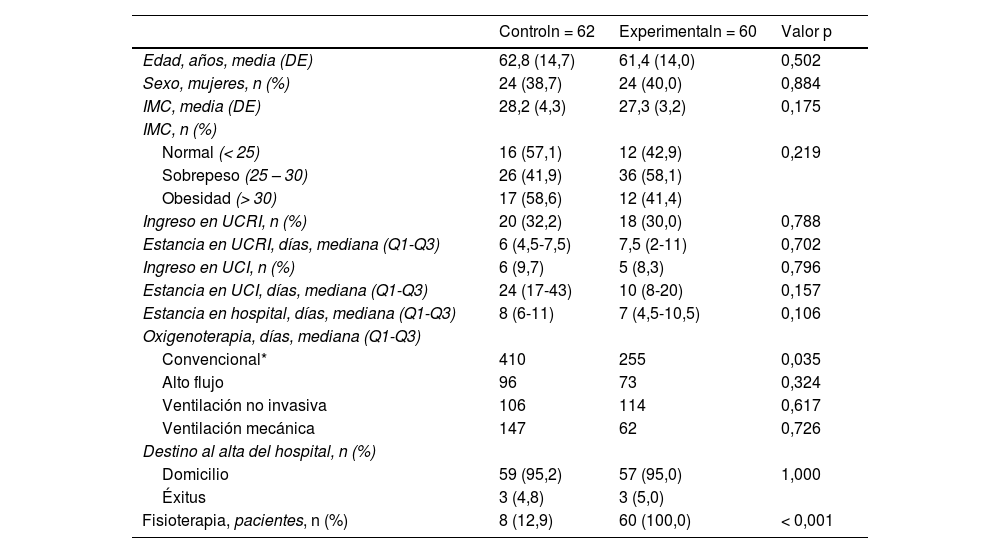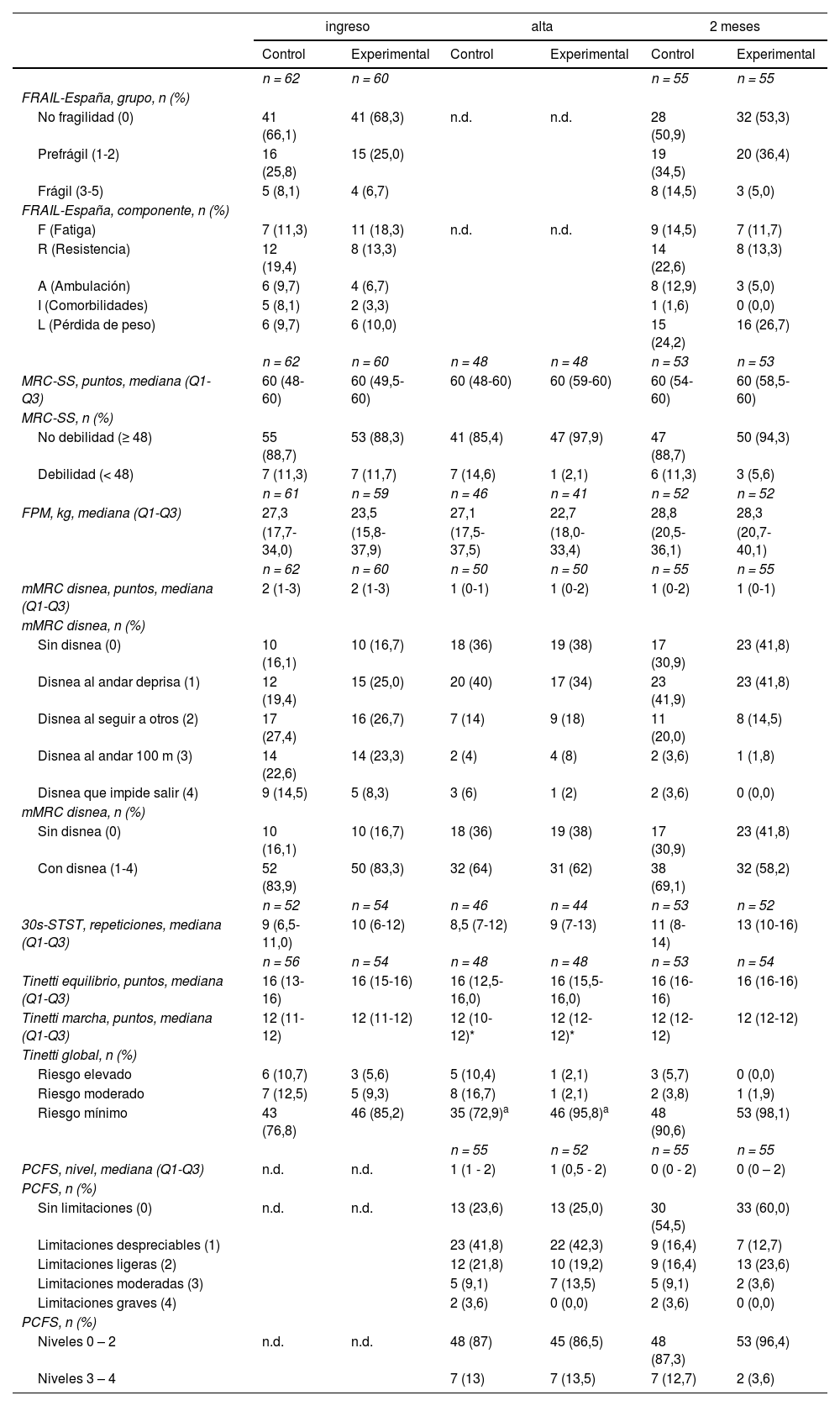La Organización Mundial de la Salud (OMS) recomienda las intervenciones tempranas de rehabilitación y movilización en pacientes hospitalizados por COVID-19. Los beneficios de la fisioterapia precoz, durante la estancia hospitalaria, no han sido probados en ensayos clínicos.
ObjetivoEvaluar los efectos de la fisioterapia precoz y educación para la salud en pacientes COVID-19 hospitalizados, en relación con los síntomas descritos en estudios previos, analizando diferencias entre grupos respecto a su acondicionamiento físico, necesidad de oxigenoterapia y estancia hospitalaria.
MetodologíaEnsayo clínico aleatorizado con dos brazos, desarrollado en unidades de hospitalización y cuidados respiratorios intermedios (UCRI), con pacientes COVID-19. Se incluyeron 64 sujetos en el grupo experimental (implementación de un programa de fisioterapia precoz tras 48-72 horas de ingreso) y 62 en el grupo control (tratamiento habitual del centro).
Variables sociodemográficas y clínicas: escala de disnea modified Medical Research Council (Mmrc), oxigenoterapia, Medical Research Council Scale sum score (MRC-SS), 30 segundos sit to stand test (30 s-STST), fuerza de prensión manual (FPM), Tinetti, escala de fragilidad (FRAIL-España) y escala Post-COVID-19 Functional Status (PCFS). Se evaluaron al ingreso, al alta y a los dos meses del alta.
ResultadosLos experimentales tuvieron menos días de ingreso y de oxigenoterapia convencional. Al alta, presentan menor riesgo de caída (72,9 vs. 95,8%) y menor debilidad en MRC-SS (2,1 vs. 14,6%). A los dos meses tenían menor fragilidad (5,0 vs. 14,5%), mayor fuerza de prensión manual, menos disnea, mejores resultados en 30s-STST y menos limitaciones post-COVID (86,5 vs. 96,4%).
ConclusiónLa intervención de fisioterapia precoz en pacientes COVID-19 y la educación para la salud recibida previenen la debilidad muscular durante el ingreso, mejoran el acondicionamiento físico al alta y a los dos meses y disminuyen los días de estancia hospitalaria.
ClinicalTrials.gov (NCT05032885).
The WHO recommends early rehabilitation and mobilization interventions in patients hospitalized for COVID-19. The benefits of early physiotherapy, during the hospital stay, have not been proven in clinical trials.
ObjectiveTo evaluate the effects of early physiotherapy and health education in hospitalized COVID-19 patients, in relation to the symptoms described in previous studies, analyzing differences between groups regarding their physical conditioning, need for oxygen therapy and hospital stay.
MethodologyRandomized clinical trial with two arms, developed in hospitalization and intermediate respiratory care units, with COVID-19 patients. Sixty-four patients included in the experimental group (implementation of an early physiotherapy program after 48–72 h of admission) and 62 patients in the control group (usual treatment of the center).
Sociodemographic and clinical variables: mMRC, oxygen therapy, MRC-SS, 30 s-STST, FPM, Tinetti, FRAIL-España and PCFS. They were evaluated on admission, discharge and two months after discharge.
ResultsThe experimental patients had fewer days of admission and conventional oxygen therapy. At discharge, they present a lower risk of falling (72.9% vs. 95.8%) and less weakness in MRC-SS (2.1% vs. 14.6%). At two months they had less frailty (5.0% vs. 14.5%), greater hand grip strength, less dyspnea, better results in 30s-STST and fewer post-COVID limitations (86.5% vs. 96.4%).
ConclusiónThe intervention of early physiotherapy in COVID-19 patients and the health education received, prevents muscle weakness during admission, improves physical conditioning at discharge and two months later, and reduces the days of hospital stay.
ClinicalTrials.gov (NCT05032885).
Article
Si ya tiene sus datos de acceso, clique aquí.
Si olvidó su clave de acceso puede recuperarla clicando aquí y seleccionando la opción "He olvidado mi contraseña".












